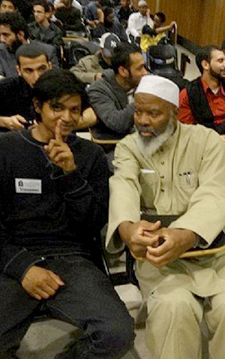Informer tells of spying on Muslims in Brooklyn, Manhattan

A paid informant for the New York Police Department’s intelligence unit was under orders to “bait” Muslims into saying inflammatory things as he lived a double life, snapping pictures inside mosques and collecting the names of innocent people attending study groups on Islam, he told The Associated Press.
Shamiur Rahman, a 19-year-old American of Bengali descent who has now denounced his work as an informant, said police told him to embrace a strategy called “create and capture.” He said it involved creating a conversation about jihad or terrorism, then capturing the response to send to the NYPD. For his work, he earned as much as $1,000 a month and goodwill from the police after a string of minor marijuana arrests.
“We need you to pretend to be one of them,” Rahman recalled the police telling him. “It’s street theater.”